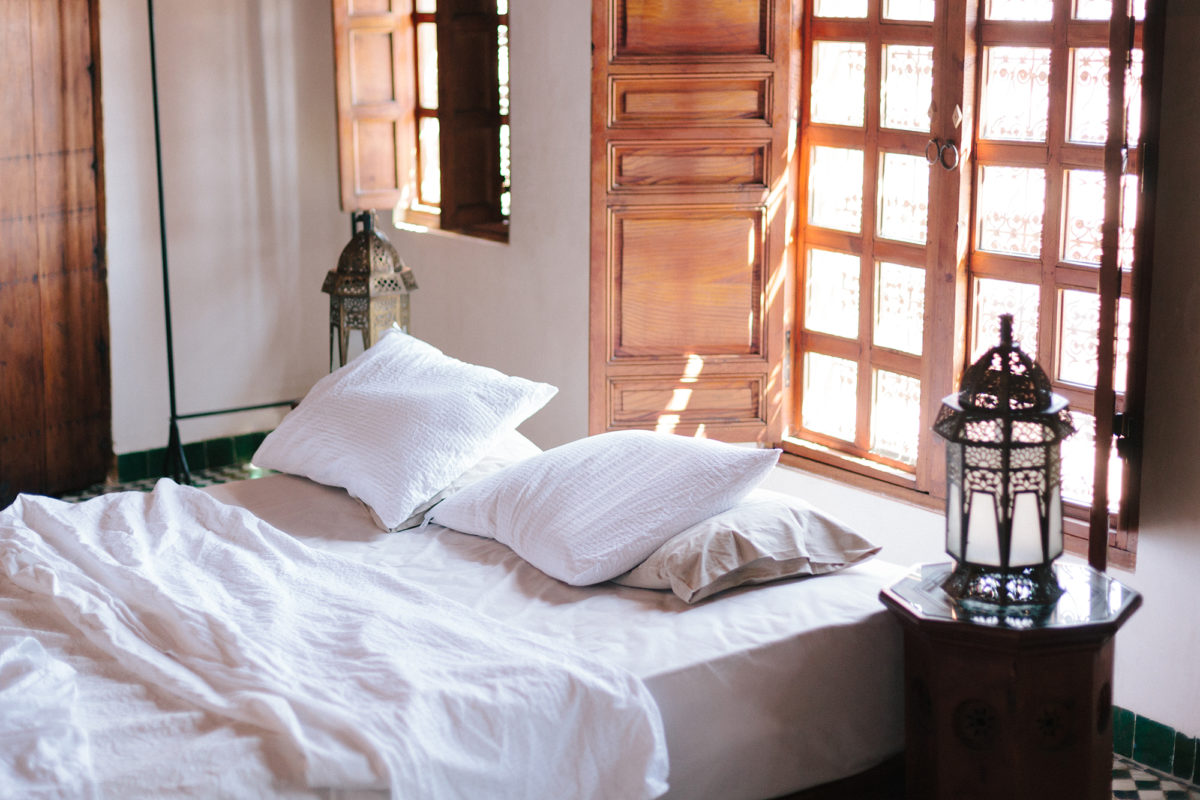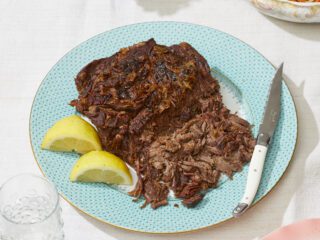Mention “slow living” and most people picture flowing linen dresses, hand-hewn wooden spoons and starlit dinner parties on balmy summer nights. Beyond an occasional Instagram-worthy moment, what is the slow living philosophy about? What (if anything) does it have to do with our everyday work lives?
At the heart of it, the slow living philosophy is all about making intentional decisions with our time, energy and money. It’s about choosing to humanize work and put something else above profit. It’s about doing less, better.
(Slow living) is about choosing to humanize work and put something else above profit. It’s about doing less, better.
Beth Kirby, creator of the award-winning blog Local Milk that explores the art of slow living, is a firm believer in the compatibility of slow living and business success. As an advocate for slow living in her life and work, she’s experienced firsthand our culture’s confused relationship with work and rest.
“People want to see you live slow—they consider that a moral good,” Beth told Darling. “However, if you’re actually doing it and you’re not working all the time, then they also think you’re not working enough, or they’ll say ‘How dare you! I work so hard, it’s not fair,’ or ‘You’re lazy, you don’t deserve what you have.’
“I’ve noticed there’s this pride [in saying things] like ‘I sleep four hours at night, and I work so hard’, but honestly now that I’ve sorted it out, I’m like ‘Well, I don’t think you’re smart about it then, are you?’ You don’t need that amount of time to accomplish [the things that really matter],” she added.
 Beth has talked openly with her followers on Instagram about how focusing on quality over quantity and applying the slow living philosophy has helped her business to thrive while also protecting her health and family life.
Beth has talked openly with her followers on Instagram about how focusing on quality over quantity and applying the slow living philosophy has helped her business to thrive while also protecting her health and family life.
“For me it’s about strategy—what are you going to do when you’re working?” she explained when asked about how she started working less and getting better results.
Research supports the idea that rest increases creativity, health and wellbeing. Long work hours do not necessarily correlate with increased productivity, and when done right, shorter work weeks can actually increase profits. Despite the facts, most of us still feel a lot of resistance to the idea of limiting our working hours and carving out time for rest.
Beth’s own understanding of the concept of slow living has shifted and evolved throughout the years to accommodate the idea of slow work.
“At first slow living to me just meant backyard dinners, bread from scratch and handmade clothing and knitting—basically returning to the slow means of making stuff,” she said. “That’s still part of it for me, but what I realized [is that slow living] became associated with leisure and so people thought that anything that was work didn’t count as slow living.”
If slow living is about treating our bodies and the world around us as precious resources that deserve and require rest, then it shouldn’t be treated as a luxury for only the elite. We must widen our understanding of the slow living movement and of what this lifestyle can look like to include more diverse examples from all kinds of social and economic backgrounds so that everyone can benefit. It’s time to shift our perception of that slow living can include our practical day-to-day lives and work.
Slow living is about treating our bodies and the world around us as precious resources that deserve and require rest.
“For me, slow living is about craft, and I don’t care what [that craft is]—maybe you’re a great doctor and pouring your time into care and research,” Beth said. “When I think of slow living, I think, ‘Everything done well takes time.'”
 Just like embracing slow fashion, which involves mending your clothing, finding treasures in thrift stores and buying less but spending more on responsibly-made items, incorporating the slow living philosophy into our work lives is possible, but it demands discipline and perhaps also some sacrifice.
Just like embracing slow fashion, which involves mending your clothing, finding treasures in thrift stores and buying less but spending more on responsibly-made items, incorporating the slow living philosophy into our work lives is possible, but it demands discipline and perhaps also some sacrifice.
“I truly don’t believe there are many shortcuts to anything,” Beth added. “To me, it’s about the time it takes to do anything well, and accepting that.”
The reward—a less overwhelming, healthier, happier, more fulfilling life—far outweighs the cost. When you consider that the future of our planet hangs in the balance, it’s also clear that halting the mindless pursuit of profit and speed in every level of our lives is vital, now more than ever.
When you hear “slow living” what comes to mind? How can you incorporate slow living into your everyday life?
Images via Wes Sumner, Darling Issue No. 20












3 comments
To me, slow living means trying to not stray from an efficient and well-prepared pathway but also focusing on things that matter most in life. Being able to tune out the distractions and industrious setting that life brings; and just appreciate.
I think that’s a really good definition! It suggests being intentional and thoughtful about the way you live, whatever that looks like…
I love this post! It’s hard to define slow-living, I feel, but doing less but doing better is one thing I’m going to do from now on! 🙂
–
Charmaine Ng | Architecture & Lifestyle Blog
https://charmainenyw.com